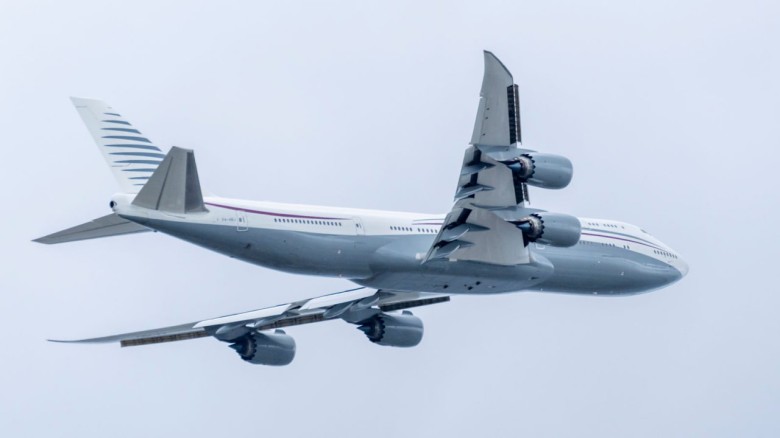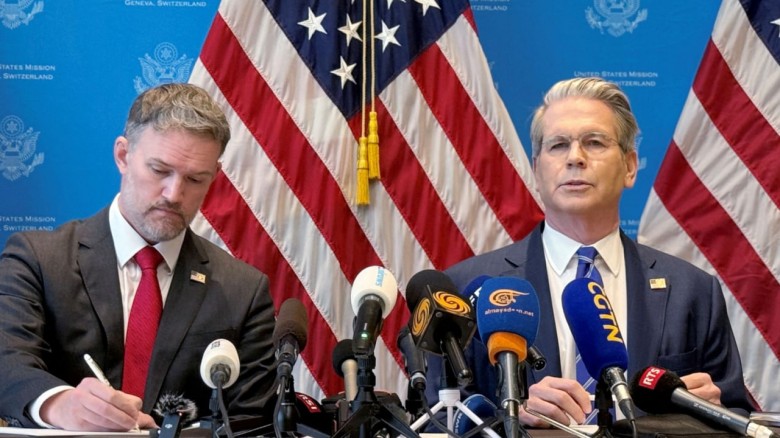Markets Surge as US and China Agree to Major Tariff Reductions
Global stock markets rallied after President Trump announced a "total reset" in US-China trade relations, easing tensions in the prolonged tariff standoff.Stock markets soared on Monday following a breakthrough in trade talks between the United States and China, with President Trump declaring a “total reset” in economic terms between the two nations. The agreement, reached over the weekend during discussions in Switzerland, marks a substantial de-escalation of the trade war that has weighed heavily on global markets.
Under the new deal, the US will reduce its tariffs on Chinese imports from 145% to 30%, while China will lower its tariffs on US goods from 125% to 10%. Although some of these duties have been suspended rather than permanently removed, Trump indicated the US is unlikely to reinstate the highest tariff levels.
“We’re not looking to hurt China,” Trump said. “They’ve been closing factories and facing unrest. They were eager to reach a resolution.”
He added that he may speak with Chinese President Xi Jinping later in the week.
The easing of trade tensions triggered a strong response from investors. The Dow Jones and S&P 500 indices both rose over 2.5% at Monday’s open, while the tech-heavy Nasdaq jumped 3.3%. European stocks also followed suit, with Hong Kong’s Hang Seng Index finishing the day up 3%.
The recent tariffs were part of a broader campaign by the Trump administration to overhaul global trade, introducing a baseline 10% duty on all imports and much steeper rates on countries deemed the "worst offenders" — a group that included China. The tit-for-tat escalations saw both nations pile on retaliatory levies, rattling markets and disrupting supply chains.
Under the terms of the new agreement, the US and China have agreed to suspend the bulk of their Liberation Day tariffs for 90 days and eliminate additional retaliatory measures. Beijing has also pledged to remove non-tariff barriers affecting US trade.
However, some elevated US tariffs will remain, including an additional 20% surcharge meant to pressure China to curb the illegal export of fentanyl, a potent opioid linked to America’s drug crisis.
The agreement was hailed by negotiators on both sides. US envoy Scott Bessent emphasized that neither country wants a full economic decoupling. “These tariffs were effectively an embargo. Now, we’re working toward more balanced trade,” he said.
China’s commerce ministry echoed this sentiment, calling the deal “an important step” toward resolving disputes and enhancing cooperation.
Economists welcomed the progress. Neil Shearing of Capital Economics described it as a “significant de-escalation” of the trade war. He cautioned, however, that trade would continue at higher prices, a burden likely to fall on US consumers and businesses.
The tariff reductions also had ripple effects beyond equities. Shares in shipping firms like Denmark’s Maersk and Germany’s Hapag-Lloyd surged by over 12% and 14%, respectively, as trade prospects improved. Conversely, gold prices — recently buoyed by market uncertainty — fell 3.1% to $3,223.57 an ounce.
In a joint statement, both governments agreed to create a mechanism for ongoing dialogue on economic and trade issues, to be led by Bessent and Chinese Vice Premier He Lifeng.
While the agreement does not resolve all points of friction — including intellectual property protections, technology transfers, and state subsidies — it lays groundwork for future negotiation and avoids the immediate risk of a full-scale trade breakdown.
President Trump, a long-time critic of the US trade imbalance with China, initially argued that tariffs would strengthen American manufacturing and protect jobs. But many economists contended they would disrupt the global economy and raise costs for US consumers.
Last month, the International Monetary Fund downgraded its global growth forecast to 2.8% from 3.3%, citing the chilling effect of trade uncertainty on investment and production.
In a related development, the US and UK recently struck a separate deal adjusting tariffs on select goods, including reductions for British exports such as cars, steel, and aluminum — though most UK products still face a baseline 10% US import tariff.
Conclusion:
While challenges remain, the US-China agreement marks a critical turning point in trade relations between the world’s two largest economies. Markets responded with optimism, hoping the 90-day reprieve can pave the way for a more permanent resolution.









































































Leave A Comment